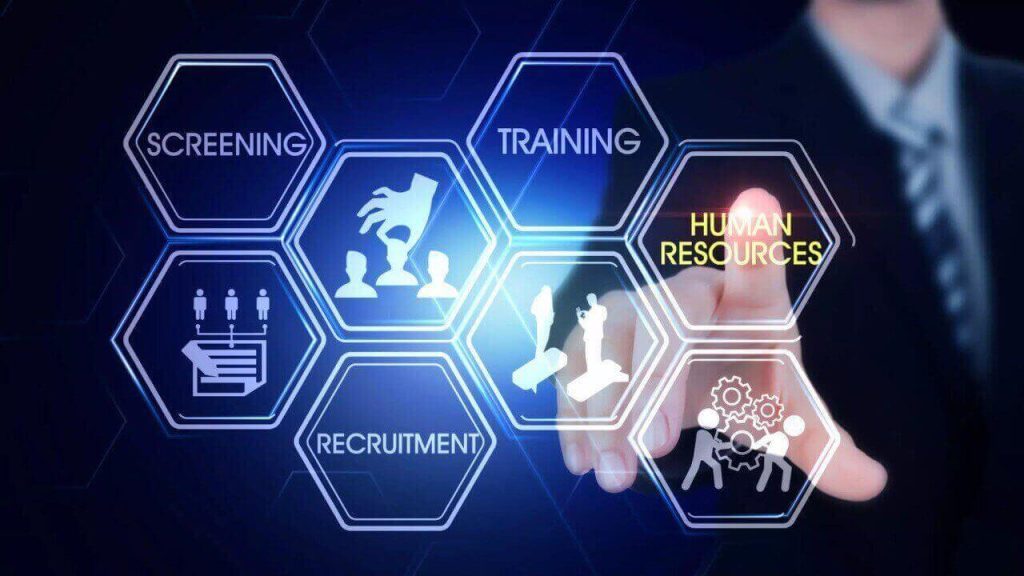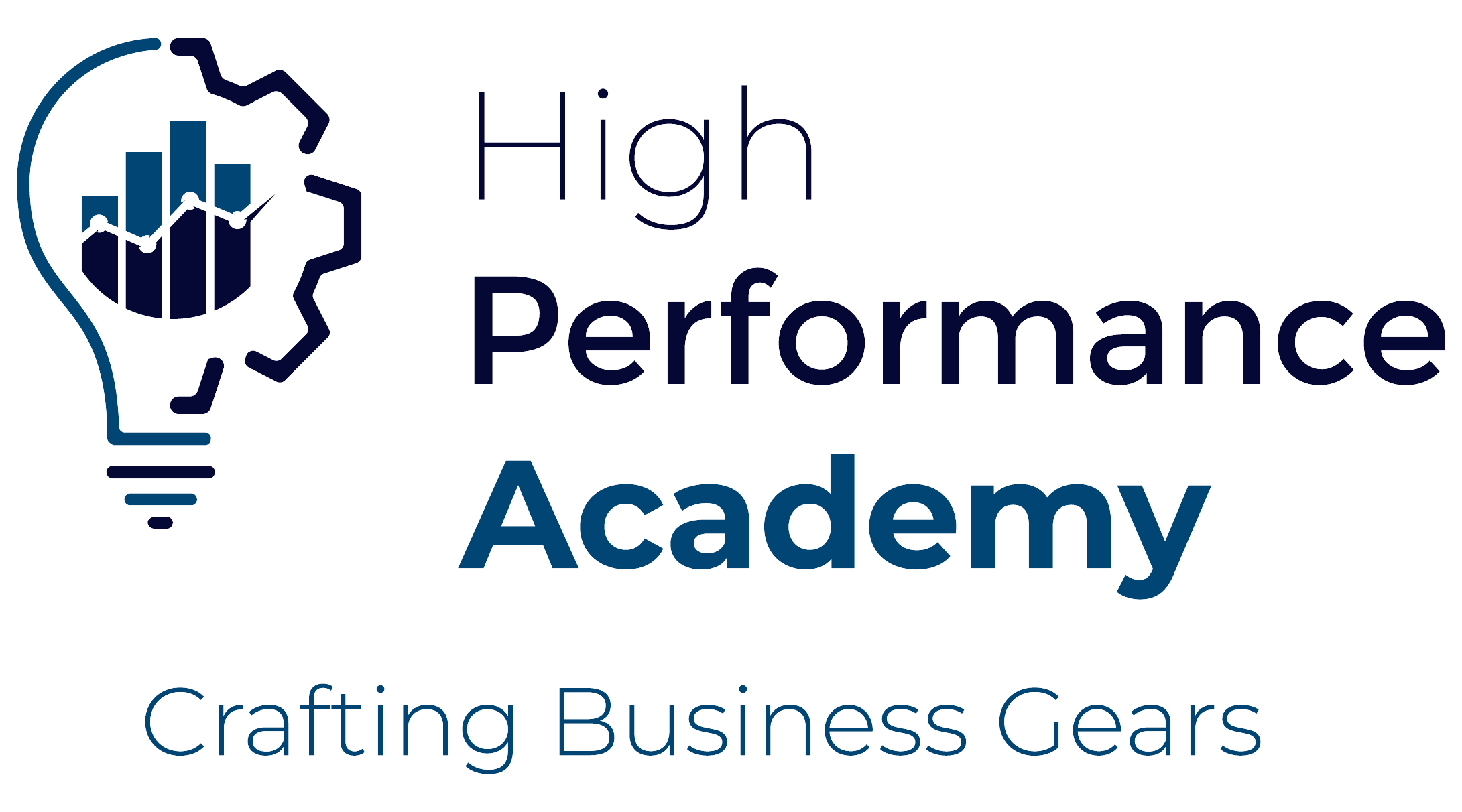
The Evolution of Human Resource Management: From Basic Administration to Strategic Partnership
Human Resources Management (HRM) has undergone a significant transformation over time, evolving from basic administrative tasks to a strategic function that directly impacts organizational success.
Table of Content
Let’s explore this journey:
1. Personnel Management (Early Stages):
In the beginning, HRM focused on fundamental administrative activities like:
- Recruiting and hiring employees
- Training and development
- Salary and benefits management
- Labor relations and legal compliance
- Organizing work systems
2. Human Resources Management (Transitional Phase):
As organizations recognized the importance of aligning HR strategies with business goals, the concept of strategic HRM emerged. This stage emphasized:
- The employee lifecycle focuses on development and skill enhancement.
- Creating a positive and interactive work environment.
- Implementing policies that promote job satisfaction and performance.
3. People and Culture Management (Current Focus):
The latest shift in HRM highlights:
- Understanding individual strengths and qualities.
- Building a work environment that reflects the organization’s values.
- Encouraging collaboration and innovation.
HRM is a Cornerstone for Success, effective HRM is crucial for any organization’s success. It serves as the foundation for building a strong and sustainable work environment.
What is Human Resources Management?
Human Resource Management pillars refer to the fundamental principles upon which human resource management operations are based in any organization. These core pillars serve as a reference for designing and implementing human resource strategies.
Human Resources Management typically includes:
- Recruitment and Selection: Choosing the right individuals with the necessary skills and capabilities to achieve organizational goals.
- Employee Development and Training: Providing training programs and continuous development opportunities to enhance employee skills.
- Performance Evaluation and Management: Regularly assessing employee performance and guiding them towards achieving organizational objectives.
- Human Resources Management: Developing policies and procedures that facilitate managing labor relations and ensure work-life balance.
The Impact of HRM | Human Resources Management in Supporting Organizational Success
By implementing these pillars, organizations can achieve significant benefits:
- Enhanced Employee Satisfaction and Loyalty: A comfortable and supportive work environment fosters employee motivation and commitment to the organization’s vision.
- Promoted Productivity and Efficiency: Developing employee skills and fostering continuous improvement leads to increased productivity and improved task efficiency.
- Fostered Trust and Transparency: Open and transparent communication builds trust between management and employees, strengthening collaboration and positive interaction.

Unleashing the Power of Human Resources
1-Recruitment and Selection:
- Rigorous selection processes based on specific criteria aligned with organizational needs and culture are crucial for choosing the right employees.
2-Employee Development and Training:
- Investing in employee development through training programs and professional development opportunities enhances their capabilities and prepares them for future challenges.
3- Performance Evaluation and Management:
- Regular performance evaluations help identify employee strengths and weaknesses, enabling targeted efforts toward achieving organizational goals.
4- Human Resources Management:
- Effective HRM practices ensure a positive and motivating work environment that contributes to achieving strategic goals.
5- Building a Successful Human Resources Management Strategy:
Here are the key elements of a successful HRM strategy:
- Goal Alignment: All HRM strategies should be effectively directed toward achieving the organization’s strategic objectives.
- Communication and Transparency: Open communication and transparency between HRM and employees contribute to a healthy work environment and enhance trust and loyalty.
- Adaptability: HRM should be flexible and adapt to challenges and changes in the work environment for continuous organizational success.
6- Building an Appropriate Work Culture:
- Organizational culture significantly impacts employee performance and overall success. It should be built on values and principles that promote:
- Collaboration
- Innovation
- Flexibility
7- Work-Life Balance: A Key Factor:
- Providing work-life balance is essential for employee health and happiness. Supportive programs that balance work and personal life can attract and retain talent, enhance productivity, and improve workplace satisfaction.
8- Developing Effective Leadership and Management
- Effective leadership and management are fundamental to an organization’s success. Managers and supervisors with strong leadership and management skills can effectively guide employees toward achieving organizational goals and motivate them for excellence.
9- Diversity and Inclusion: A Path to Success:
- Diversity and inclusion are essential for building a well-rounded work environment. Promoting diversity in the workplace and fostering inclusivity allows organizations to attract a wider range of talent and promote innovation and creativity.
10- Technology: A Catalyst for Change:
- Technology plays a crucial role in improving HRM processes and facilitating tasks like payroll, human resource management, and internal communication. Organizations should leverage technology effectively to enhance work efficiency and provide exceptional employee experiences.
11- Continuous Improvement: The Key to Success:
- Continuous performance monitoring and evaluation are fundamental tools for improving performance and achieving organizational success. Organizations should implement effective systems to monitor employee performance and guide them toward achieving organizational goals more effectively.

These HR courses and training programs cover a variety of human resources management and develop the skills necessary to work in this field.
Let’s take a look at each of them:
♦ TNA | Training Needs Analysis Workshop:
A workshop aimed at providing participants with the skills and tools necessary to analyze training needs within an organization and develop effective training programs.
♦ Certified L&D Professional:
A training program designed to qualify participants to take on responsibilities in the field of training and development within organizations.
♦ The Art of Managing People Course:
A training course focusing on skills in personnel management, leadership, and effective communication.
♦ Thomas International Certification – PPA Assessment:
A training program aimed at qualifying participants to use Thomas International PPA assessment methods for behavior analysis and personality assessment.
♦ Certified L&D Manager:
An advanced training program targeting the development of management skills in the field of training and development.
♦ Human Resources KPI Workshop:
A workshop focusing on developing participants’ skills and understanding of key performance indicators in human resource management.
♦ Organizational Development Course:
A training course covering concepts of organizational development and how to improve organizational performance and culture.
♦ PHRi™ Certification / SPHRi™ Certification:
Professional Human Resources Management certification programs (PHRi/SPHRi) offered by HRCI, are aimed at developing participants’ skills in human resource management.
♦ HR Data Analytics course:
A training course focusing on using data analysis in decision-making in the field of human resource management.
♦ HR Diploma:
A study program provides a comprehensive understanding of various aspects of human resources management and develops the necessary skills for working in this field.
♦ aPHRI Certification:
An entry-level Human Resources Professional certification offered by HRCI, targeting new professionals in the field of human resource management.
♦ Talent Acquisition Training:
Specialized training focusing on talent acquisition strategies and effective recruitment processes.
These courses and training programs provide opportunities for professionals in the field of human resource management to develop their skills and increase their expertise, helping them advance in their careers and achieve their professional goals.
In summary, successful human resources management requires the application of a comprehensive set of pillars and principles. By effectively recruiting, developing, and managing human resources, as well as diligently implementing these pillars, organizations can enhance organizational success, achieve excellence, and sustainably grow in a competitive business environment.

FAQ:
1-What is the best HR | human resources training?
Determining the “best” HR training depends on various factors, including your specific needs, career goals, level of experience, and learning preferences. However, some highly regarded HR training programs and certifications that are recognized in the industry include Human Resource Certification Institute (HRCI) Certifications.
HRCI offers certifications such as:
Senior Professional in Human Resources (SPHR): The HR practices demonstrated by these widely recognized certificates are proficient.
Training Needs Analysis (TNA) Workshops: TNA workshops provide valuable skills for assessing training needs within organizations and developing effective training programs.
Talent Acquisition Training: Training focused on talent acquisition strategies and effective recruitment processes can be beneficial for HR professionals involved in hiring and talent management.
Data Analytics in HR: With the increasing importance of data-driven decision-making in HR, courses or workshops focused on HR data analytics can be highly valuable.
Organizational Development Courses: These courses cover concepts related to improving organizational performance, culture, and effectiveness.
L&D (Learning and Development) Programs: Training programs aimed at developing skills in training delivery, instructional design, and learning management can be beneficial for HR professionals involved in employee development.
When considering HR training options, it’s essential to research the content, accreditation, reputation, and relevance of the program to your career goals and organization’s needs. Additionally, networking opportunities, practical exercises, and case studies offered in the training can enhance the learning experience and applicability of the skills gained.
2-How can I learn HR | Human resourses fast?
Learning HR quickly requires a focused approach and dedication to gaining knowledge efficiently.
Here are some steps you can take to accelerate your learning in HR:
Set Clear Goals: Determine what specific aspects of HR you want to learn and why. This will help you focus your efforts and resources on relevant topics.
Utilize Online Resources: Take advantage of online courses, tutorials, webinars, and blogs dedicated to HR topics. Platforms like LinkedIn Learning, Udemy, Coursera, and HPA offer a wide range of HR courses suitable for various skill levels.
Join Professional Associations: Joining organizations like the Society for Human Resource Management (SHRM) or the Chartered Institute of Personnel and Development (CIPD) can provide access to valuable resources, networking opportunities, and educational events.
Engage in Practical Experience: Seek opportunities to apply what you learn in real-world settings. If you’re not currently working in HR, consider internships, volunteering, or freelancing to gain practical experience.
Network with HR Professionals: Connect with HR professionals through social media platforms like LinkedIn, attend industry events, and participate in HR-related forums and discussions. Networking can provide insights, advice, and potential mentorship opportunities.
Stay Informed: Stay updated on the latest trends, developments, and best practices in HR by regularly reading industry publications, subscribing to HR newsletters, and following influential HR thought leaders on social media.
Ask Questions and Seek Feedback: Don’t hesitate to ask questions and seek feedback from experienced HR professionals or instructors. You can improve your talents and discover areas for growth with the use of constructive feedback.
Practice Continuous Learning: Make learning a continuous process by dedicating regular time to study and practice HR concepts. Set aside time each day or week to engage in learning activities and review previously learned materials.
Use Practical Tools: Familiarize yourself with HR software and tools commonly used in the industry, such as HRIS (Human Resource Information Systems), ATS (Applicant Tracking Systems), and performance management platforms. Hands-on experience with these tools can enhance your proficiency.
Seek Certification: Consider pursuing HR certifications like SHRM-CP, PHR, or HR Analytics certifications to validate your knowledge and skills in specific areas of HR.
Remember that learning HR is a journey, and it’s essential to be patient, persistent, and proactive in your pursuit of knowledge and skills. By combining self-directed learning with practical experience and networking, you can accelerate your learning and progress in the field of HR.
3-Is it hard to learn Human Resources?
The difficulty of learning HR can vary depending on various factors such as your background, prior experience, learning style, and the specific aspects of HR you’re focusing on.
Here are some factors to consider to learning Human Resources:
Complexity of HR Concepts: HR encompasses a wide range of topics, including recruitment, employee relations, compensation and benefits, performance management, HR law, training and development, and more. Some of these topics may be more complex and nuanced than others, requiring a deeper understanding.
Legal and Compliance Knowledge: HR professionals often need to navigate complex legal regulations and compliance requirements related to employment law, labor relations, discrimination, and workplace safety. Understanding and applying these regulations correctly can be challenging.
Soft Skills Development: In addition to technical knowledge, HR professionals need strong interpersonal and communication skills to effectively interact with employees, managers, and stakeholders. Developing these soft skills may require practice and self-awareness.
Evolving Field: The field of HR is constantly evolving due to changes in technology, workforce demographics, globalization, and legal regulations. Staying updated on the latest trends and best practices can require ongoing learning and adaptability.
Practical Experience: Applying theoretical knowledge to real-world HR situations and challenges can sometimes be more challenging than learning concepts in a classroom or through self-study. Practical experience can help reinforce learning and develop problem-solving skills.
While learning HR may pose challenges, many individuals find it rewarding and fulfilling. With dedication, continuous learning, practical experience, and support from mentors and professional networks, you can overcome any difficulties and build a successful career in HR. Additionally, there are numerous resources available, such as online courses, certifications, professional associations, and networking opportunities, to support your learning journey.
4-Which HR certification should I get first?
The choice of which HR certification to pursue first depends on your career goals, level of experience, and the specific area of HR you’re interested in.
Here are some widely recognized Human Resources certifications along with guidance on who might benefit most from each:
Professional in Human Resources (PHR) or Senior Professional in Human Resources (SPHR): Offered by the Human Resource Certification Institute (HRCI), these certifications are similar to the SHRM certifications but are based on HRCI’s Body of Knowledge. The PHR is suitable for HR professionals with a few years of experience, while the SPHR is geared toward those with more extensive experience and strategic HR responsibilities.
Associate Professional in Human Resources (aPHRI): Also offered by HRCI, the aPHRI certification is designed for entry-level HR professionals or individuals transitioning into HR roles. It provides a solid foundation in HR principles and can be a good starting point for those new to the field.
HR Analytics Certifications: If you’re interested in HR analytics and data-driven decision-making, certifications such as the HR Analytics Professional (HRAP) or Predictive Analytics for HR (PAHR) offered by organizations like the HR Analytics Certification Institute might be suitable.
Talent Acquisition Certifications: For HR professionals focused on recruitment and talent acquisition, certifications like the Talent Acquisition Strategist (TAS) offered by the Human Capital Institute (HCI) could be beneficial.
Consider your current skill level, career aspirations, and the specific areas of HR you’re passionate about when selecting a certification. Additionally, research the requirements, exam format, and ongoing maintenance requirements for each certification to ensure it aligns with your goals and timeline. If you’re unsure, consider reaching out to HR professionals who hold certifications you’re interested in for advice and insights.
5-Should I do a Human Resources course?
Deciding whether to pursue an HR course depends on various factors such as your career goals, current level of knowledge and experience in HR, and the specific skills or areas you want to develop.
To assist you in making an informed choice, take into account the following:
Career Goals: If you’re considering a career in HR or aiming to advance your existing HR career, taking an HR course can provide you with valuable knowledge, skills, and credentials that may enhance your employability and advancement opportunities.
Knowledge and Experience: Assess your current level of knowledge and experience in HR. If you’re new to HR or have limited experience, an introductory HR course can provide you with foundational knowledge and skills to get started in the field. If you’re already working in HR, you may benefit from more advanced or specialized courses to deepen your expertise in specific areas.
Skill Development: Identify the specific skills or areas of HR you want to develop or improve upon. HR courses cover a wide range of topics such as recruitment, employee relations, compensation and benefits, HR analytics, talent management, and more. Choose a course that aligns with your learning objectives and career aspirations.
Credentials and Certifications: Some HR courses offer certifications or credentials upon completion, which can enhance your resume and demonstrate your expertise to employers. Consider whether obtaining a certification is important for your career goals and if the course you’re considering offers recognized credentials.
Professional Development: Continuous learning and professional development are essential in HR, given the dynamic nature of the field. Taking HR courses can help you stay updated on industry trends, best practices, and emerging technologies, allowing you to remain competitive and adaptable in your career.
Cost and Time Commitment: Consider the cost and time required to complete the HR course, as well as your availability and willingness to invest in your education. Explore different course formats (e.g., online, in-person, part-time, full-time) to find one that fits your schedule and budget.
Ultimately, whether you should do an HR course depends on your individual circumstances, career goals, and learning preferences. If you believe that further education in HR will benefit your career advancement and skill development, then pursuing an HR course could be a worthwhile investment in your professional growth.
6-What does HR do?
Human Resources (HR) departments play a crucial role in organizations by managing the people-related aspects of the business.
Here are some key functions and responsibilities of Human Resources:
Recruitment and Hiring: HR professionals are responsible for attracting, sourcing, and hiring qualified candidates for job openings within the organization. This involves creating job descriptions, posting job ads, reviewing resumes, conducting interviews, and making hiring decisions.
Onboarding and Orientation: HR oversees the process of integrating new employees into the organization. This includes conducting orientation sessions, providing information about company policies and procedures, and facilitating training sessions to help new hires become productive members of the team.
Employee Relations: HR handles employee relations matters, including resolving conflicts, addressing grievances, and promoting a positive work environment. HR professionals serve as a resource for employees to discuss concerns, seek advice, and receive support.
Performance Management: HR develops and implements performance management processes to evaluate employee performance, provide feedback, and set goals for improvement. This may involve conducting performance reviews, identifying training needs, and recognizing high performers.
Training and Development: HR coordinates training and development initiatives to enhance the skills and competencies of employees. This may include organizing training programs, workshops, and seminars, as well as providing resources for self-directed learning.
Compensation and Benefits: HR manages compensation and benefits programs, including salary administration, employee benefits packages, and incentive programs. This involves ensuring compliance with labor laws, benchmarking salaries, and administering employee benefits such as health insurance, retirement plans, and paid time off.
Employee Engagement: HR promotes employee engagement and morale by implementing initiatives to foster a positive workplace culture and sense of belonging. This may involve organizing employee events, recognizing achievements, and soliciting feedback through surveys and focus groups.
HR Administration: HR handles administrative tasks related to employee records, payroll processing, and compliance with employment laws and regulations. This includes maintaining personnel files, processing payroll, and ensuring adherence to labor laws such as equal employment opportunity (EEO) regulations and workplace safety standards.
Policy Development and Compliance: HR develops and updates company policies and procedures to ensure compliance with legal requirements and industry standards. This includes policies related to anti-discrimination, harassment prevention, code of conduct, and data privacy.
Strategic Planning: HR plays a strategic role in organizational planning by aligning HR strategies with business objectives. This involves forecasting workforce needs, identifying talent gaps, and developing initiatives to support organizational growth and change initiatives.
Overall, HR functions as a strategic partner to management, supporting the organization’s goals by effectively managing its most valuable asset: its people.
Successful human resource management cannot be achieved without focusing on its core pillars. It is not merely a set of procedures and policies, but the foundation upon which the success of any organization is built. By investing efforts in enhancing and developing these pillars, organizations can enhance their performance and achieve sustainable success in the daily business environment.
At the end, choosing HPA Academy is a perfect choice for individuals and corporate looking to develop and enhance their performance through different training courses, as HPA has extensive experience, high professionalism, and advanced technologies in this field.
To know more details about HR Courses and programs, Contact us now.
Tag:Human Resources




